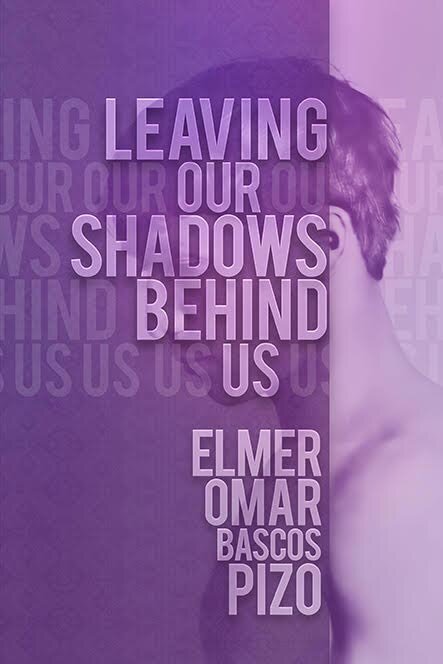Baring the Soul of Our Diaspora
/Book Review: Leaving Our Shadows Behind Us by Elmer Omar Bascos Pizo (Bamboo Ridge Press, 2019).
Leaving Our Shadows Behind Us by Elmer Omar Bascos Pizo
The poems in Elmer Omar Basco Pizo’s new collection, “Leaving Our Shadows Behind Us”—published by Bamboo Ridge Press in Hawaii, is a glimpse into the soul of Filipinos in the diaspora; from the Philippines to Saudi Arabia to Hotel Street in Honolulu. This is a poetry that connects us as Filipinos, through our contradictions, pain, humor and, finally, resilience, perhaps our greatest virtue. The poems address the complexities of what it means to be a Filipino. From the poem, “Identity”:
From the venerated stones of my river
Where mudfish bump hibernating catfish,
Where spiders in muddy rice fields weave their geometric webs,
To the volcanic fires of Mayon, Taal, and Pinatubo,
The verdant forests of the Cordilleras,
The variegated blues of the Pacific Ocean and South China Sea,
Surrounding the islands of the Philippines,
This is what I am:
The price of grace is the endurance of the spirit in the shadows of hardships and injustice of this world. The poet honors those whose lives have formed his poetry, the “web of broken lines” in a hand that has worked, touching the most precious things, bearing them as gifts for the eyes of the poet to behold, who, in turn, plants it deep only to bloom in poems bursting, telling stories that refuse to be silent.
He continues, through poetry, to tell the story of his people, from whom he cannot extricate himself:
The common folk who still gargle water scooped
With coconut ladles from clay water jars,
Instead of the Nescafe` vintage drinking glasses of the 1970’s
The dried hands of mothers mending
Tattered clothes beside flickering kerosene lamps
Where gullible moths are tempted to flirt
With deceitful flames
In his poetry, Pizo mends the rifts in the heart and spirit of our community and the individual. This is a poet that has lived and experienced the harshest of trauma; from beatings by a father for any perceived infraction of the rules in his “imaginary kingdom” to the humiliation of physical torture in another kingdom–Saudi Arabia—where he worked as a Greenhouse Agriculturalist, one of many overseas Filipino workers (OFWs), and was beaten every Friday for four months for standing up against the mistreatment of workers.
These masters thought we contract workers
were lambs or goats bound at their feet
to be slashed across their jugulars,
as offerings,
making sure the desert bloomed
After his stint in Saudi Arabia—a two-year contract—Pizo returned to the Philippines, beset by another tragedy; the bus he was on collided with another bus head-on, causing the death of an elderly woman sitting next to him and five other passengers. Pizo suffered a concussion, losing his short term memory. At the behest of his neurologist, he began writing as part of his therapy.
Elmer Omar Basco Pizo (Photo by Hawaii Public Radio)
This poetry has depth yet its message—its soul and spirit—is not negated or diminished by the poet’s time spent in the kingdoms of academia, where he was a fellow at Silliman University and at the Vermont Art Center. On a panel of poets at the Filipino book festival, Pizo belied his identity as poet with humor, asserting: “I’m not a poet, I just like to carve wood.” His voice is many voices, for the poet has lived many lives and articulates the unsevered connection between poet and land, poet and ritual, poet and community. It is poetry that reconciles and is vulnerable, a vulnerability that is informed by strength. Pizo teaches, but is not pedantic; he is not interested in lecturing. His poems are a handful of soil, to be felt and scattered.
I had the pleasure of seeing Pizo read at the Filipino American International Book Festival in San Francisco, an event held every two years that attracts Filipino American and Filipino authors in the diaspora. It was my first encounter with him. I found him to be very warm, and when he informed the audience he lived in Hawaii—has lived there 31 years—I wanted to shout out, “Eh Braddah!” I felt an instant connection with his heartfelt poetry; I could smell the bagoong, the chicharon, dried pusit—throughout the auditorium. Of course, there is the voice of the manong, surviving through poetry, singing Sinatra’s “My Way” in a way that only a manong can:
ay did iiit myyy weeeyyyyyy! Tenk you beri mats!
The poetry in this collection is a balm for the scars we carry. As he writes describing his mother in the aftermath of a beating inflicted upon him by his father:
Struggling to pour the oil into the palm of her left hand ruined by a web of broken lines, she whispered: Everything will be all right
The poems of Elmer Omar Bascos Pizo is the oil that provides comfort to the bruises and scars borne; an ointment of resilience and, ultimately, grace. These poems confront who we are, head on.
Tony Robles, "The People's poet" is author of two poetry/ short story collections: Cool Don't Live Here No More-- A letter to San Francisco" and "Fingerprints of a Hunger strike ". Short list nominee for poet laureate of San Francisco in 2017 and 2019 individual artist grant recipient by the San Francisco Art Commission. Currently lives in North Carolina and is working on his first novel.
More articles from Tony Robles




